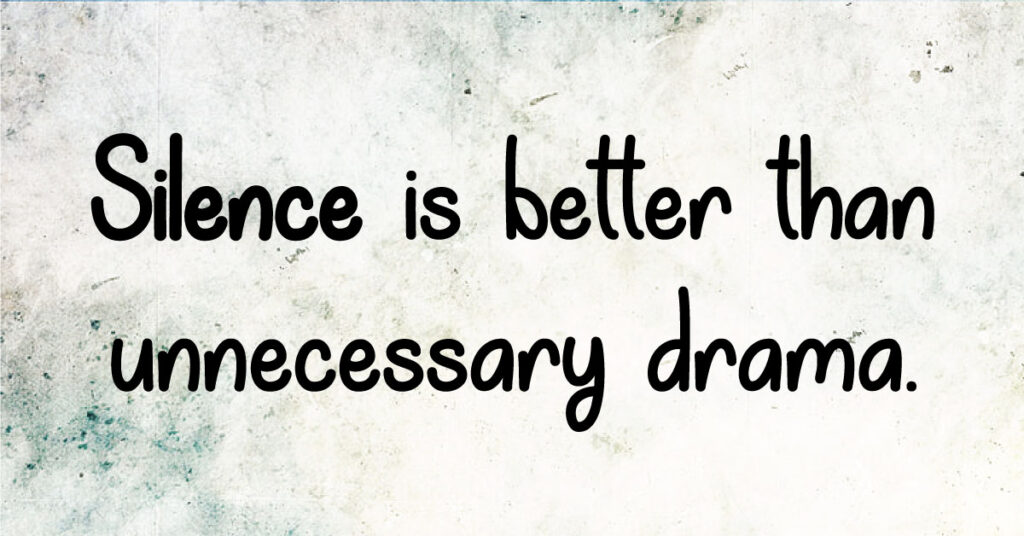In a world where kindness is often praised, it’s easy to believe that there’s no such thing as being too nice. However, like a double-edged sword, excessive niceness can actually lead to negative outcomes. While being considerate and helpful are commendable traits, overdoing it can cause stress, fatigue, and a feeling of being taken for granted.
It’s important to strike a balance between being kind and standing up for oneself. If you’re constantly bending over backwards for others while neglecting your own needs, it might be time to reevaluate. Herein, we delve into nine signs that indicate you might just be too nice for your own good and how this excessive kindness could be more destructive than constructive.
You Constantly Put Others’ Needs Before Your Own
When you constantly prioritize others’ needs over your own, it may be a sign that you’re being excessively nice. This tendency, often associated with being a “fixer”, can lead to feelings of resentment and exhaustion.
It’s important to understand that self-care isn’t selfish, but a necessary aspect of maintaining your own mental and emotional health. By neglecting your own needs in favor of others, you risk experiencing burnout and potentially damaging your relationships due to built-up resentment.
You Feel Guilty For Focusing on Yourself
If you find yourself ridden with guilt whenever you choose to prioritize your own needs, it could be an indication that your niceness is tipping over into self-neglect. It’s crucial to remember that self-care, far from being selfish, is a fundamental aspect of maintaining both mental and physical health.
When you constantly put others’ needs before your own, it can lead to a depletion of your energy reserves, leaving you feeling drained and exhausted. Ultimately, this neglect of self-care for the sake of pleasing others can have detrimental effects on your overall well-being.
You Struggle to Say No
The struggle to utter a simple “no” is often a telltale sign of people who are excessively nice. While lending a helping hand is commendable, constantly agreeing to every request or demand can result in feeling swamped and overstretched.
It’s important to understand that it’s perfectly okay to say “no” when you need to prioritize your own needs or when you’re unable to commit due to various reasons. Remember, setting boundaries is a crucial part of maintaining your mental and emotional well-being.
You Agree With Everyone Without Giving Your Own Opinion
If you find yourself constantly agreeing with others and rarely voicing your own opinions, this could be an indication that your kindness is overstepping into self-suppression. While empathy and understanding are valuable traits, it’s equally important to remember that your thoughts and perspectives hold worth and should be expressed.
Continual suppression of your viewpoints in favor of maintaining harmony can result in feelings of dissatisfaction and can give rise to resentment over time. It’s essential to strike a balance between being kind and ensuring that your voice is heard.
You’re Conflict Averse
An extreme aversion to conflict, while seemingly peaceful, is not a healthy trait. While it’s true that most people dislike arguments or confrontations, completely shying away from them can result in unresolved problems and accumulated frustration.
It’s important to remember that disagreements are a natural part of human interactions and expressing your differing views respectfully when required is crucial. This allows for open communication, resolution of issues, and prevents the buildup of negative emotions.
You Feel Unappreciated
If you find yourself persistently acting kindly but feeling unappreciated, it might be an indication that your niceness is being taken for granted. Unfortunately, being kind doesn’t always ensure that others will respond in kind.
It’s crucial to consider the company you keep and ensure that these are people who genuinely value and appreciate your efforts. Feeling valued is a key aspect of maintaining healthy relationships and preserving your self-esteem.
You’re a People Pleaser
If you find yourself always striving to satisfy others, often overlooking your own happiness in the process, this could indicate that you’re excessively nice. The habit of people-pleasing can be draining and seldom results in authentic contentment since it’s based on the reactions of others rather than your own fulfillment.
It’s vital to make choices that align with your personal desires and requirements, rather than primarily focusing on appeasing others. Remember, your happiness matters and making decisions that reflect your needs is a significant aspect of self-care.
You Feel Resentful After Saying Yes
If you often feel resentment after consenting to do something, this could be a clear indication that you’re being overly nice. Such resentment typically originates from a sense of pressure to agree or say “yes” to requests or tasks when, in reality, you would prefer to decline or say “no”.
It’s essential to communicate your true feelings honestly and assertively. Remember, setting boundaries and standing up for your own needs is not only healthy, but it’s also a crucial part of maintaining balanced relationships.
You Avoid Setting Boundaries
If setting boundaries feels challenging for you, this could be a sign that your niceness is going beyond the healthy limit. Boundaries are crucial in preserving balanced relationships and protecting your own mental and emotional well-being.
In their absence, there’s a risk that individuals might exploit your kindness, leading to feelings of being used or unappreciated. Remember, it’s not just okay, but necessary, to establish and maintain personal boundaries for your own health and happiness.
How to Be More Sturdy and Still Be Nice to People
Being sturdy, in this context, refers to maintaining your personal boundaries and standing up for your own needs. This doesn’t mean you have to stop being kind or considerate of others. Instead, it’s about balancing your natural inclination to be nice with the necessity of asserting yourself.
Learn to Say No
Getting comfortable with saying “no” without experiencing guilt is a crucial step in self-care and setting boundaries. It’s important to understand that it’s completely within your rights to reject requests that you don’t have the capacity, energy, or inclination to meet. Remember, your time and energy are valuable, and you’re not obligated to commit to everything asked of you.
Set Boundaries
It’s crucial to openly convey your boundaries to others. Clear communication helps avoid any misinterpretations and can prevent you from overcommitting yourself, which can lead to stress and resentment. By being upfront about your limitations, you ensure that your relationships are based on mutual respect and understanding.
Express Your Opinions
Expressing your thoughts and emotions is not only healthy, but it’s also vital for maintaining genuine relationships and standing up for yourself. Remember, your perspective is important and has the right to be voiced. Don’t shy away from sharing your feelings or ideas out of fear or doubt; your voice matters and is deserving of being heard.
Prioritize Self-Care
Prioritizing activities that you love and that contribute to your overall well-being is essential for maintaining balance in life. Engaging in these activities can help rejuvenate your energy levels, boost mood, and serve as a stress reliever. Remember, self-care isn’t a luxury, it’s a necessity, and making time for things you enjoy is a key part of that.
Final Thoughts
Kindness is a beautiful quality to possess, but it’s important to remember that you need to take care of yourself too. It’s alright to prioritize your own needs and well-being from time to time. Just as the saying goes, “You can’t pour from an empty cup.” So ensure your cup is filled before helping to fill others’. You matter, and taking care of yourself is not selfish – it’s necessary.








